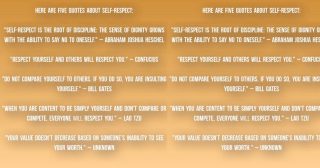Why Men Are Unable to Express Their Feelings as Women
Men often struggle to express their feelings as openly as women due to a combination of societal, cultural, and psychological factors. Here’s a breakdown of why this might be the case:
1. Societal Expectations and Gender Roles
- Traditional Masculinity: Society has long associated masculinity with strength, stoicism, and emotional restraint. Men are often taught from a young age that expressing emotions, especially those seen as vulnerable like sadness or fear, is a sign of weakness.
- "Boys Don’t Cry" Mentality: Phrases like "boys don’t cry" reinforce the idea that men should suppress their emotions. This conditioning can start in childhood and continue throughout life, leading to emotional suppression.
2. Cultural Norms
- Cultural Stereotypes: In many cultures, men are expected to be providers and protectors, roles that are often linked with emotional resilience and control. Displaying emotions can be seen as compromising these roles.
- Fear of Judgment: Men may fear being judged or ridiculed by peers, family, or society if they express their emotions openly. This fear can lead to a reluctance to share feelings, even in situations where it would be beneficial.
3. Psychological Factors
- Emotional Conditioning: Over time, men may become less in touch with their emotions because they have been conditioned to suppress them. This can make it harder for them to recognize, understand, or articulate what they are feeling.
- Difficulty in Vulnerability: Expressing feelings requires a certain level of vulnerability. Men who have been taught to prioritize strength and control may find it challenging to open up and be vulnerable.
4. Communication Styles
- Different Emotional Language: Men and women often have different ways of processing and expressing emotions. Women might be more comfortable verbalizing their feelings, while men might express them through actions or non-verbal cues.
- Problem-Solving Approach: Men often approach situations with a problem-solving mindset, which can lead to them focusing on solutions rather than discussing emotions. This pragmatic approach can sometimes be misinterpreted as emotional detachment.
5. Impact of Upbringing
- Parental Influence: The way boys are raised plays a significant role in how they express emotions as adults. If boys grow up in environments where emotional expression is discouraged or punished, they are more likely to carry that behavior into adulthood.
- Lack of Emotional Education: Many boys are not taught how to recognize and express emotions in a healthy way. Without these skills, they may struggle to communicate their feelings effectively.
6. Fear of Rejection
- Concerns About Relationship Dynamics: Men may fear that expressing emotions will lead to rejection or change the dynamics of a relationship. They might worry that being emotionally open will make them appear less masculine or capable.
7. Biological Factors
- Brain Structure Differences: Some research suggests that there are differences in how male and female brains process emotions, though this is still a topic of ongoing study. These differences might contribute to the varying ways in which men and women express their feelings.
8. Media Representation
- Media and Masculinity: The media often portrays men as strong, silent types who rarely show vulnerability. These portrayals can reinforce societal expectations and make men feel that expressing emotions is not "masculine."
Addressing the Issue:
- Promoting Emotional Intelligence: Encouraging men to develop emotional intelligence can help them understand and articulate their feelings better.
- Changing Societal Norms: Shifting societal attitudes towards masculinity and emotional expression can create a more supportive environment for men to express their emotions.
- Open Conversations: Encouraging open and non-judgmental conversations about emotions can help men feel more comfortable sharing their feelings.
By understanding these factors, society can work towards creating a culture where men feel just as comfortable expressing their emotions as women, leading to healthier relationships and well-being.









